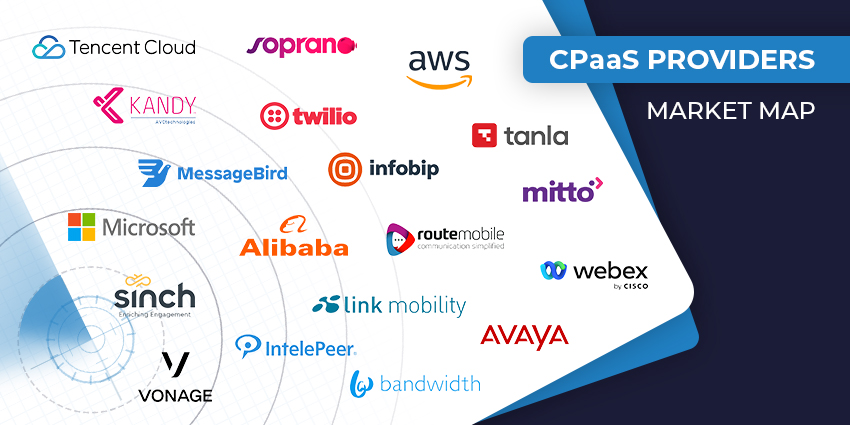Cloud communication services are becoming an integral part of digital transformation efforts because they offer improved methods and new channels to engage with customers. Communication service providers (CSPs), for example, are integrating voice and messaging capabilities into their UC, CPaaS and CCaaS offerings as a strategy to automate and improve these business processes.
CSPs such as Avaya, Five9, RingCentral and 8×8 have formed partnerships with software-centric carriers to automate their telecom offerings and provide business customers with the ability to better communicate with internal and external networks. UberConference, for example, is a meeting software service that utilises a cloud-carrier to instantly provision phone numbers, providing its customers with conference enabled numbers on demand. Slack also facilitates agile communications within organisations; however, in both of these use cases, without the support of a provider that offers carrier-grade calling and messaging capabilities, these platforms would be far less valuable to the enterprises and their customers.
With enterprise and customer demand driving the need for improved workflows and collaboration as outlined above, the growth of the cloud telecom market is just getting started. Research firm MarketsandMarkets, projects the global telecom API market is forecasted to grow to more than $230 billion by 2021, at a CAGR of 19.87 percent. This growth reinforces the trend of CSPs continuing to improve digital transformation (DX) efforts.
Telecom APIs aid in these efforts by automating CSPs existing processes and their access to telephony resources. This includes the ability to tailor customer support, scale networks and manage call volumes. In partnership with software-centric carriers that are delivering these API-based offerings, CSPs are able drive consumption of their core services, while also helping business customers differentiate offerings and grow their customer base.
Some of the improvements enabled by telecom APIs include the ability to purchase and configure numbers in the cloud, route calls, as well as automate and streamline E911 setup and caller ID name management.
Additional differentiators for CSPs can include:
- Access to phone numbers. Telecom APIs allow CSPs to search for and purchase voice and text-enabled phone numbers. Through an API, CSPs can quickly provision a phone number from a pool of numbers to provide conference calling. Similarly, cloud-based contact centers can quickly utilise toll-free numbers to customise and better support customer service efforts
- Ability to rapidly scale services. CSPs often have tens of thousands of port orders, requiring them to purchase phone numbers in bulk and then look up new rates for those phone numbers. This simply isn’t scalable without automation through APIs. Through telecom APIs, CSPs can instantly purchase, port, provision and configure voice and messaging services with direct access to and control over high-quality telephony resources. Applications and services that used to take weeks to be processed through a traditional telco carrier can now be completed instantly through APIs
- Extend customer relationships. For service providers, telecom APIs provide the opportunity to help their customers differentiate their offerings while also nurturing their end-customer relationships. Businesses can improve customer interactions by giving their end-users a choice in how they interact with the business. This includes options ranging from “traditional” voice calls, web forms, text messaging, automated phone menus and the like, all of which can be provisioned and managed by the CSP
- Integration with existing platforms and applications. Service providers can also add value by helping businesses to find cloud-based communications solutions that integrate into existing applications and software, such as CRM platforms or appointment booking systems
For CSPs, APIs are the gateway to providing reliable, flexible and scalable voice and messaging solutions for customers. Utilising APIs now will help to distinguish competitive advantage in the long run and will, in turn, provide business customers with advanced capabilities and a lasting positive impact that can be directly tied to both revenue growth and end-customer satisfaction rates.
Guest Blog by Al Castle, vice president of product & engineering for Flowroute, a West Company
Al is the vice president of product and engineering at Flowroute, a West Company. He brings more than 15 years of operational experience in software engineering and B2B SaaS platform management. Prior to joining Flowroute, Castle was the director of engineering at Motorola Solutions, where he built and launched the organisation’s first SaaS platform and IOT enterprise software system in less than five months.







